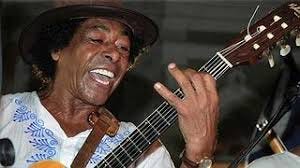It had to be challenging, creating original songs as a young musician in Brazil in 1980.
Then as now, the country’s musical history – its distant history, the lineage of samba – occupied a central role in cultural life; even the few brave progressive-rock renegades had to acknowledge it.
Aspiring artists were still seeking their place within the rapid stylistic upheavals that came after the international embrace of bossa nova. These included the rock-inspired protest music of Tropicalia, and the various socially aware pop derivations grouped under the clunky heading Musica Popular Brazileiro, or MPB. Not to overlook the inescapable influence of jazz-rock fusion rhythms from the U.S., which became ubiquitous in Brazil in the mid ‘70s. (There’s an argument that not long after the early peak of that sound, with works like the Milton Nascimento/Wayne Shorter collaboration Native Dancer in 1974, few Brazilian artists contributed to it in meaningful ways, despite many attempts.)
Then there’s the not-small problem of the reigning stars. Most of the talents who emerged during the astonishingly fertile period of the 1970s were prolific record-makers; even their minor efforts and missteps garnered big attention upon release. A very abbreviated list of such names who, in 1980, were still casting formidible shadows over all of Brazilian music: Elis Regina; Nascimento; Joyce; Joao Gilberto; Caetano Veloso; Gilberto Gil; Jorge Ben; Tim Maia.
Raimundo Sodré, a guitarist and singer from northeast Brazil, was pretty much a complete unknown when he entered the TV Globo Festival MPB song competition in 1980. His song, “A Massa,” addressed income inequality and the lingering menace of the dictatorship. One line expresses a laborer’s defiant attitude toward the regime: “At the handle of my hoe, I don’t know the coronel (the South American big man).”
The song is an earworm all day long, one of several with infectious singalong refrains on Sodre’s debut. It’s based on the baião rhythm common in northeastern Brazil, but doesn’t rely on the accordion that is frequently at the center of traditional music from the region. Instead, there are layers of fingerpicked guitar and a thick, solid electric bass.
The accordion slides into the spotlight later, on a song called “Cocoroco” that nearly flattened me when I first heard its languid introduction. With flutes and bird calls swirling around him, Sodré – whose mother was a Candomble priestess – sings a lament that carries traces of African chant and Delta blues inflection. Except it’s lullabye delicate, and earnest, and serene in that uniquely Brazilian way. (This is before the song proper even starts.)
This album contains more of these surprises. Sodré evidently intuited that the music he grew up hearing everywhere, not just at dances and carnival celebrations – samba de roda, baiao, the superfast frevo – could, with slight tweaks, enchant 1980’s young listeners. (It did with that first single “A Massa,” but subsequent projects were not as well received; Sodré vanished after several albums, reappearing intermittently over the years since. There’s recent-ish footage of him on YouTube, playing with friends and former collaborators.).
Throughout his debut, Sodré sings with an easygoing temperament, at times sounding almost sleepy. But he’s exacting as a musician: His spare grooves gather steam over time, suggesting deep understanding of the ways to evolve a rhythm. His flute choirs utilize arrestingly modern voicings, the kind that would fit on a David Byrne record. He conjures all kinds of otherworldly sounds with the caipira 10-string guitar – sometimes playing intricate scampering arpeggios, sometimes whipping up a blustery whirlwind of beautiful texture. Sure, Raimundo Sodré is another in a long line of complete unknowns who, despite abundant talent, stayed that way. But what he created, at a moment in Brazil when the deck was stacked against creativity, still resonates.








That “Cocoroco” tune is infectious! Thx!
Thx T. Never heard him before. My Brasilian ear years were triggered by Flora & Airto, Milton, Hermeto, Gilberto Gil, …that big 80s/90s wave of buckets of great releases. Probably my most listened to solo acoustic guitar album of all time is Bola Sete’s OCEAN. I left it on my turntable once for 2 solid months. Didnt need anything else. Desert Island pick fo sho.